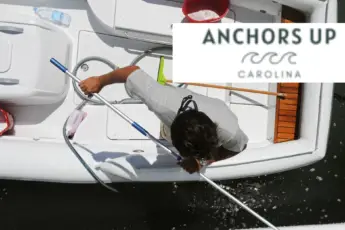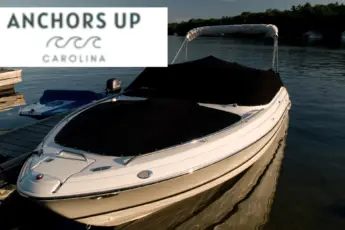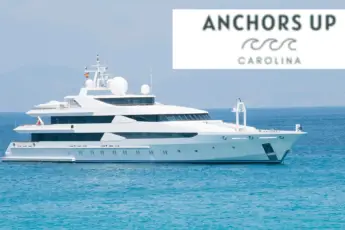Unfortunately, a fun day on the water turns to disaster on occasion as a result of launching boats at ramps. On a yearly basis, the tow vehicle ends up taking a swim along with the trailer and the boat. Without question, there are a multitude of reasons as to why vehicles end up in the water at ramps. Here are the 5 five reasons why tow vehicles end up in the water at a boat ramp.
The Driver Fails To Put The Vehicle In Park
Without a doubt, boat ramps are congested places, especially during the weekends. Mistakes are easily made when put under pressure to get the boat in or out of the water.
One of the most common mistakes causing tow vehicles to swim is the driver failing to put the automobile in park.
The driver prematurely exits the vehicle to release the boat from the trailer. As the driver steps out and removes their foot from the brake the vehicle rolls backwards and into the water.
For this reason, it is important to slow down and think about what you’re doing. Never hurry out of the truck before the gear has been shifted into park. Importantly, this can happen when you’re launching alone or with the help of others.
Parking Pawls Slip
An automatic transmission operates differently compared to a manual transmission. Remember, with a manual transmission, the parking brake must be applied to keep the vehicle from rolling.
Comparatively, an automatic transmission truck can be shifted into park, which in turn holds it in position without applying the parking brake.
The vehicle is held in place thanks to a parking pawl. A pawl drops into the gear when the gear is shifted to the park position.
Unfortunately, pawls fail or slip on occasion. One of the primary reasons that pawls fail is the weight of the load being towed. As a boat is back down the ramp, it is applying a significant amount of pressure on the pawl. Overloading the pawl can cause it to fail and slip. Ultimately, the vehicle ends up in the water.
The best solution for preventing the pawl from slipping is applying the parking brake.
The Surface Of The Ramp Is Too Slippery
As an avid boater, I have encountered slippery boat ramps on a routine basis. It is important to know that ramps become slick from the growth of algae and, especially during the summer months.
Unquestionably, slick ramps cause tow vehicles to slide. I have slid down ramps countless times but, fortunately, was able to stop before my truck ended up in the water.
Importantly, if you’re unfamiliar with a ramp, I suggest walking the ramp before you back down the boat. Assess the condition of the launch so you can know ahead of time if it will or will not be slick.
Lastly, when backing down the launch, go slowly. Racing in reverse and stomping on the brakes will cause the vehicle to carry its moment thus putting you at risk of ending up in the water. A submerged vehicle is more than likely going to be declared a total loss by the insurance company.
Drivers Become Panicked
As mentioned before, boat ramps are busy places. Feeling rushed can lead to a disastrous situation.
Without question, fellow boaters get angry as they wait in line for their turn to get their vessel in the water.
For this reason, it is important to remain in the moment. Stay focused on all of your actions and ignore nasty comments or long line ups of boaters.
No question about it; becoming panicked leads to poor decision-making. Ultimately, poor decision-making increases the chances you will lose your vehicle.
Distractions Draw Your Attention Away From The Task
Similar to the point mentioned above, distracting situations are occurring at all times while at a boat ramp.
The combination of moving vehicles, people walking, and loud engine sounds is a lot to process when you’re under stress.
Importantly, you want to avoid focusing on what others are doing but instead on the task at hand. Obviously, you need to be on the lookout for dangers, but focus on anything not associated with launching or retrieving the boat.
Prevent Your Tow Vehicle From Ending Up In The Water
As you can see, tow vehicles end up in the water at a boat ramp for a multitude of reasons. One of the best ways to reduce risk when the vehicle is shifted into park is to apply the parking brake. Your day can turn quickly from good to bad, ruining not only your day on the water but also your tow vehicle. Unfortunately, your vehicle will likely be a total loss.







